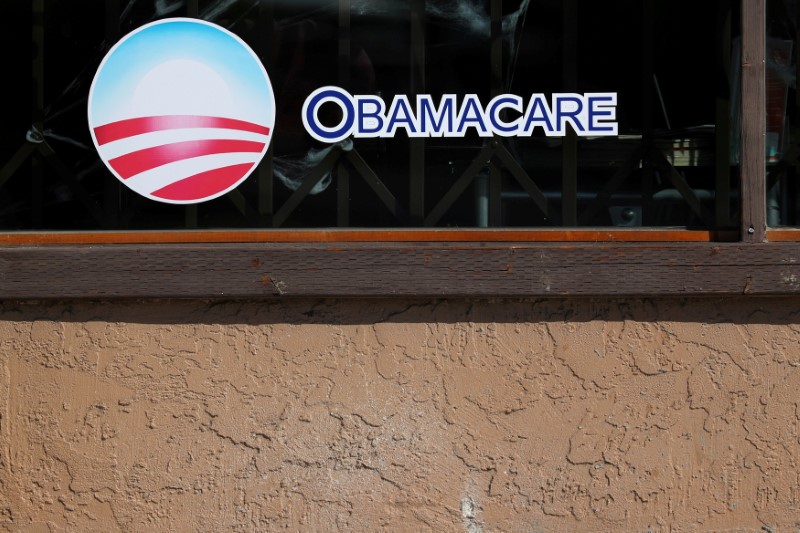WASHINGTON (Reuters) - U.S. House Republicans proposed on Tuesday to delay or suspend several taxes under former President Barack Obama's healthcare law, including a tax on medical devices and the so-called "Cadillac" tax on generous health insurance plans.
The move represents a new Republican attempt to roll back provisions of the 2010 Affordable Care Act widely known as Obamacare, after repeated failures by Congress' majority party this year to repeal the law.
Republicans in the House and Senate are also in the final stages of reconciling tax overhaul legislation, including a proposal to scrap Obamacare's individual mandate, which imposes a tax penalty on Americans who do not obtain health insurance.
A spokeswoman for the House Ways and Means Committee said the additional proposed healthcare tax rollbacks would not be part of the broader tax overhaul bill.
Republicans could try to merge the healthcare tax proposals with a must-pass government funding bill that is expected to be passed by Dec. 22, when current funding runs out. But to succeed, Republicans in the Senate, who hold a slim majority of seats, would need an assist from Democrats to get past procedural hurdles.
In a statement, House Ways and Means Chairman Kevin Brady announced five new Republican-sponsored bills to provide targeted relief from Obamacare taxes, saying he looked forward to "advancing legislation in the weeks ahead."
One proposed bill would retroactively eliminate Obamacare penalties for employers who did not offer health insurance to their employees over the last three years, as well as for next year.
The bill would also delay for one year the Cadillac tax on high-cost employer-sponsored insurance, which is otherwise scheduled to go into effect in 2020. Labor unions oppose this tax because their members often receive more generous healthcare plans, and they fear it would increase their costs.
Another bill would suspend for five years the tax on medical devices, such as pacemakers and artificial hips. It was first imposed in January 2013 as a funding mechanism for Obamacare, a law that has brought medical coverage to millions of previously uninsured Americans.
The medical device tax has powerful opponents in both parties and manufacturers have lobbied heavily against it.

Other proposals in the package would suspend a tax on health insurers for two years, and provide two years of relief from a tax on over-the-counter medications.